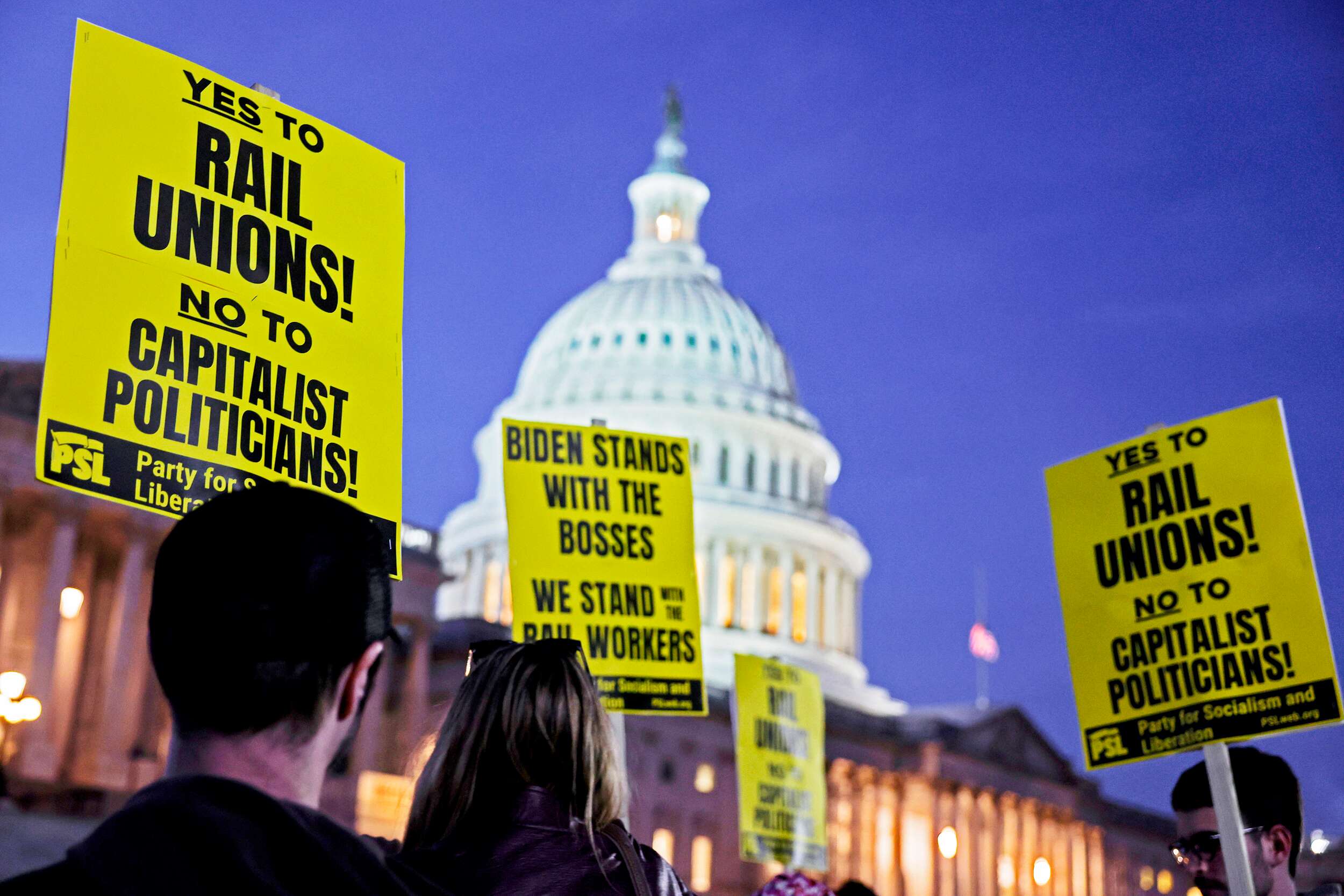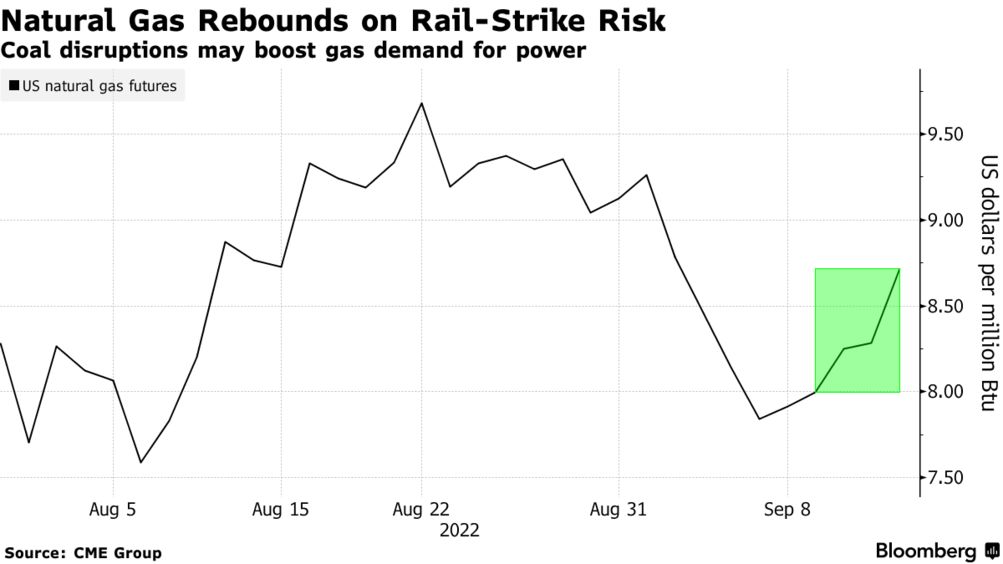Introduction
The US economy can continue functioning without freight trains, but not for very long. Economists and businesses are concerned about the possibility of the first nationwide railroad strike in thirty years. A lengthy walkout lasting a week or longer will seriously harm the country’s still weak supply chain, resulting in widespread closures and shortages, and very certainly increase prices even as inflation stays close to a 40-year high. If there is a strike, less gas will be produced, ruined crops, a shortage of new cars, and empty store shelves over the holiday season (Yurkevich, 2022). Additionally, there may be brief layoffs of factory workers shortly. The effects of a railroad strike would inevitably be devastating.

Impact of Railroad Strike on the Economy
America’s railroads continue to be essential for maintaining a healthy US economy. According to the Bureau of Transportation Statistics, they transport nearly 30% of the country’s freight when weight and distance are considered (Bureau of Transportation Statistics, 2019). Research released earlier this fall predicted that a rail strike would cost the economy $2 billion per day (LaRocco, 2022). Another recent study conducted by a trade association for the chemical industry predicted that if a strike lasts for a month, 700,000 jobs would be lost as manufacturers who depend on railroads shut down, prices would rise even more across the board, and the economy may enter a recession (CBS, 2022). If the trains stop, there truly is no alternative. Even if some companies would want to switch to using trucks for shipping, there are not nearly enough available.
Gas prices have been slowly declining for the past three months. However, a rail strike could cause prices to spike once more due to a lack of supplies. Refineries use pipelines to transport the crude oil they receive and most of the fuels they create, including gasoline, diesel, and jet fuel. However, a crucial step in the production of the gas used in homes is the use of railroad tank trains. Rail is also utilized to transport lower-grade goods, waste materials, and many chemicals required in refining. If the materials needed for the refinery are not arriving, this will translate to reduced production.
To prevent tank trains carrying hazardous substances from becoming stranded, railroads will stop shipping hazardous chemicals roughly a week before the strike deadline, which will immediately impact chemical factories and refineries. It will be challenging to obtain the chlorine that water treatment plants use to disinfect the water, as they may only have a week’s worth on hand. Shortage of clean drinking water would be one of the most direct impacts of this strike. Chemical factories also produce carbon dioxide as a byproduct. Therefore, beverage manufacturers’ supply of carbon dioxide to carbonate soda and beer would also be constrained.
Consumers may soon experience shortages of foods like cereal, peanut butter, and even alcohol at their local grocery store. Rail transport moves about 30% of all packaged foods in the US (LaRocco, 2022). Food shortages have been downplayed in the United States to prevent panic buying. Any interruption in rail service could also endanger the well-being of pigs and hens that depend on trains to transport their feed and push up the price of meat. Because their local supply of corn and soybeans from this year’s harvest is likely exhausted, and they would have to ship feed by truck, which would result in significantly higher costs, the National Grain and Feed Association claimed that a rail strike now would hit pork and chicken producers in the southern United States hardest. A railroad strike would soon put the nation’s food security in a dangerous situation.

Reactions of Americans
As a result of the Ukraine crisis, prices worldwide have skyrocketed, leaving US individuals in difficult financial circumstances. The economy is just recovering from the COVID-19 pandemic. The economy would be further threatened, and the lives of ordinary people would become more complicated if the nation entered a rail strike. This strike would trigger a feeling of sadness and resentment from the US citizens. Americans might end up losing confidence in the Biden administration. The President must ensure that Congress acts in haste to stop this strike. With the ongoing midterm election, resentment is the last thing the current administration wants to happen since this might make them lose a lot of elective positions.
In conclusion, a rail strike’s impacts would start appearing quickly in the economy. Many companies only have enough raw materials and storage space for a few days’ worth of finished goods. Their clients and the producers of food, fuel, automobiles, and chemicals would feel the pinch. Not to mention the commuters who would be stuck since many passenger trains use freight railroads’ property. Congress needs to act promptly to avoid any looming calamity.
References
Bureau of Transportation Statistics. (2019). Bureau of transportation statistics. Web.
CBS. (2022). What a looming rail strike could mean for the american economy. Web.
Freitas Jr, G. (2022). Threat of US rail strike starts to shake up commodity markets. Bloomberg. Web.
LaRocco, L. A. (2022). Deadline to avoid a national rail strike which could cost economy $2 billion a day is near. CNBC. Web.
Pettypiece, S. (2022). How a rail strike could have a “catastrophic” effect on the drinking water supply for millions. NBC News. Web.
Yurkevich, C. I., Vanessa. (2022). Railroad strike, and the economic damage it would cause, looms closer | CNN business. CNN. Web.